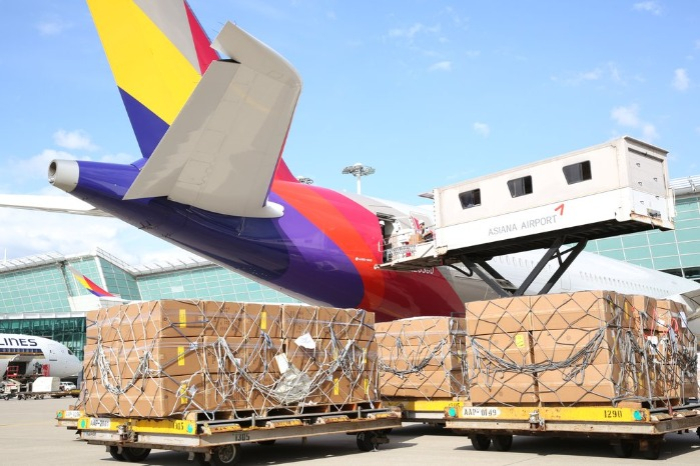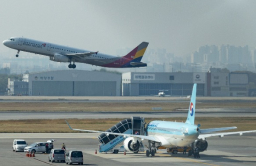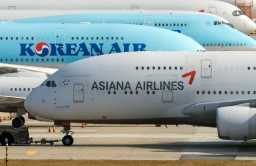-
KOSPI 2577.27 -2.21 -0.09%
-
KOSDAQ 722.52 -7.07 -0.97%
-
KOSPI200 341.49 +0.02 +0.01%
-
USD/KRW 1396 -2.00 0.14%
Jeju Air, MBK Partners in talks to buy Asiana’s cargo unit
The acquisition may not be easy due to some roadblocks in the possible partnership, sources say
By
Apr 05, 2024 (Gmt+09:00)

South Korea’s top budget carrier Jeju Air Co. is in talks with North Asia-focused private equity firm MBK Partners to acquire Asiana Airlines Inc.'s cargo unit, which is estimated at 300 billion won ($222.1 million) to 500 billion won, according to banking sources on Friday.
For the partnership, MBK is considering using its second special situation fund which closed at 2.1 trillion won in 2021, sources added.
Jeju Air had been in discussions with many PE houses to acquire the cargo unit since the budget airline was named one of the four bidders with Air Premia Inc., Eastar Jet and Air Incheon in February.
While the other three bidders’ major shareholders are PE firms, Jeju Air is backed by AK Holdings Inc., the holding firm of Korean retail conglomerate Aekyung Group.

CHALLENGES
There are roadblocks in the possible partnership with Jeju Air and MBK.
A bidder for the cargo unit deal should hold an air operator’s certificate (AOC). Therefore, the PE house can't finance the acquisition through a joint venture or new entity.
Instead, a possible scenario is that MBK buys Jeju Air’s new shares or convertible bonds, and then Jeju Air uses the proceeds for the acquisition, according to banking sources. In this case, MBK will become a major shareholder in Jeju Air, embracing risks in the budget airline’s passenger and cargo businesses.
If the main Kospi-listed Jeju Air issues new shares or convertible bonds, the existing stakeholders may be dissatisfied with the structure and size of the offerings. It is also not easy to set up MBK’s exit plan, according to sources.
It is also unclear that Jeju Air, under financial pressure, has a strong will to acquire Asiana’s cargo division which needs a significant amount of capital to replace aging aircraft.
Jeju Air’s parent AK Holdings took a 30 billion won loan to back loss-making affiliate and department store operator AK S&D in 2022. For the borrowing, AK Holdings used a 45.23% stake in Jeju Air as collateral, which is valued at more than 300 billion won.
The sale of the cargo unit is one of the conditions for the merger between Korean Air Lines Co. and Asiana. In February, the European Commission gave its nod to Korean Air’s acquisition of Asiana on condition that the merged entity sell Asiana’s global cargo division and give up the four Europe-bound routes and their slots to low-cost carrier T’way.
The preferred bidder is expected to be selected as early as May and will sign a stock purchase agreement, banking sources said.
Write to Jun-Ho Cha and Ji-Eun Ha at chacha@hankyung.com
Jihyun Kim edited this article.
-
Feb 28, 2024 (Gmt+09:00)
-
Feb 14, 2024 (Gmt+09:00)
-
Jan 31, 2024 (Gmt+09:00)
-
Nov 03, 2023 (Gmt+09:00)
-
 Mergers & AcquisitionsAsiana Airlines to sell cargo business for merger with Korean Air
Mergers & AcquisitionsAsiana Airlines to sell cargo business for merger with Korean AirNov 02, 2023 (Gmt+09:00)






